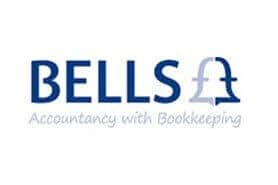With the start of the new year brings the deadline for filing tax returns. If you are self-employed, a partner in a partnership, or the executor of an estate, you must pay tax through Self-Assessment and are required by law to submit a Self-Assessment tax return. The deadline for this each year is the 31st of January, and you may be subject to late filing penalties if you do not complete your returns before this deadline. Our experts can talk you through what you need to submit before the deadline, and if you are eligible to submit a Self-Assessment tax return.
Do I need to submit Self-Assessment tax returns?
For any business owners, partners, trustees, or executors of estates, you are legally required to complete a Self-Assessment tax return. You may also need to submit a tax return if you have other untaxed income such as money from renting a property, income from savings and investments, or dividends. If your tax liability has increased when compared to the previous year, you must also pay a balancing payment. If your liability has fallen, you will have paid too much and you will receive a repayment from HMRC. If you know in advance that your taxable income will decrease, you should reduce your payments on account.
The importance of submitting tax returns on time
Filing tax returns on time is important for your business for the following reasons:
Responsibility
Making sure you have your taxes filed on time is a clear sign that you can responsibly run your business. It is important to showcase to potential employees, customers and investors that you are responsible, and your business has a clear track record. This will benefit you when trying to grow your business in the future.
Applying for loans
You may wish to apply for a credit card or loan to grow and support your business, so it is essential to keep a record of your tax returns for this reason. Banks and other institutions will need a clear picture of your financial circumstances so that they can be sure you have the capability to pay back loans or credit card bills.
Late filing penalties
You can be punished for failing to file your tax returns on time. The penalties for overdue payment will increase depending on when you pay. Penalties are as follows:
- One day late up to three months – £100 fine.
- Three months late – daily £10 penalties for up to 90 days.
- Six months late – 5% of the tax liability or £300, whichever is greater.
If you are late paying your balancing payment, you could also be liable to additional penalties, which include:
- Overdue payment by 30 days – 5% of the tax liability.
- 5 months after first penalty – an additional 5% of tax outstanding.
- 11 months after first penalty – another additional 5% of tax outstanding.
Completing a Self-Assessment tax return can be a time-consuming activity, and accuracy is essential to ensure you are not subject to penalties from HMRC. Using a trusted qualified accountant can help you to ensure accuracy and ensures that you submit your tax returns on time every year. It can free up your time to focus on running your business. Choose our experts at Bells Accountants for your tax returns and you will see the benefits straight away. Call us now on 020 8468 1087 or email to speak to our team today.


